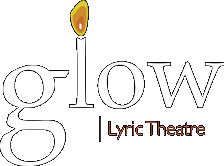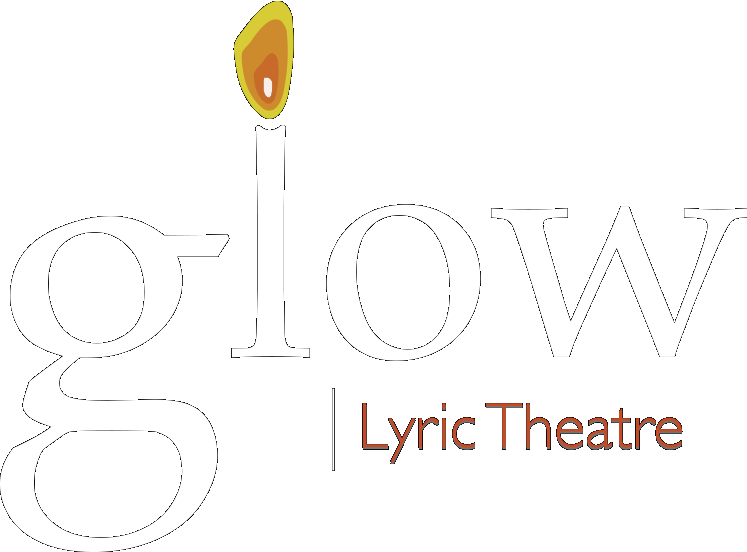864.558.4569 (GLOW)
Anti-Racist Action Plan
Glow Lyric Theatre recognizes that we have been complicit in maintaining the practices of a racist system in our theatre field.
-We recognize that our mission to promote social justice, empathy and understanding through musical theatre and opera is empty without a public and transparent commitment to removing the systems of white supremacy, inherent bias and privilege within our organization.
-We continue our commitment to ongoing anti-racism work, and to making fundamental changes to our staff, creative practices, and board of directors in order to create a truly anti-racist organization.
-The following is a living, breathing and ongoing document that has been updated and re-evaluated each year since first implemented in 2015. Feedback is welcome by emailing our Artistic Director at: jenna@glowlyric.com
These are the commitments we will act on immediately:
Governance and Training
- Hire an outside anti-racist, equity and inclusion consultant by January 2021 to engage in an 18 month contract that will work with Glow to further develop and implement the anti-racism initiatives in our organization. They will also provide ongoing support by examining and updating this document as needed and maintaining our accountability to this plan.
- Nominate at least 2 additional Black, Indigenous and People of Color members to the Glow Board of Directors by the end of 2021 which will bring the percentage of BIPOC members from 25% (avg. since 2019) to 50% (at least 4 of 8 board members).
- Re-examine and change our board recruitment policies, creating on-boarding that encourages board peer to peer mentorship and shifts our board requirements away from the “give or get” model. (September 2021)
- Require rolling anti-racist training to all Staff and Board, twice a year. (May 2021)
- Require directors, designers, stage managers and heads of departments to complete anti-racism training prior to working with Glow. EDI, antiracism, or implicit bias training will include bystander intervention, de-escalation, and conflict resolution training to provide the necessary tools to address racism and racist actions when they occur. (June/July of 2021)
- Provide every Summer Festival employee with an anti-racism training workshop before the first rehearsal/work day of the Summer Festival Season. This will be followed by check in office hours with our EDI consultant throughout the season. (August 2021)
- Commit to intentionally recruit, include and support BIPOC employees when the opportunity arises to hire new staff members. (Ongoing)
- Commit to a vision statement that explicitly lists antiracism as one of its key goals or functions. (March 2021)
Casting & Hiring
- Increase the percentage of non-white artists we employ each season from 38% (based on 2018 & 2019 seasons) to at least 50% by summer of 2022.
- Provide potential employees and auditionees with access to our Company Handbook, which includes policies on BIPOC safety, sexual harassment, anti-racism, and reporting in place by our next audition season. (January 2022)
- Include trigger warnings and content disclosures in audition and employment notices of required nudity, violence, intimacy, sexual acts, simulated racial violence, racial slurs, acts of bigotry, and BIPOC stereotypes. (January 2022)
- Include the director’s name, if the show will be cast non-traditionally, which roles will be cast that way, and specifically list race/ethnicity when required in each casting notice. (January 2022)
- Make script/scores available with our audition notices, and with trigger/content warnings where applicable. (January 2022)
- Make Sign Language Interpreters available at auditions and callbacks when requested (January 2022).
- Create and enforce clear policy exemplifying our commitment to hiring BIPOC designers, directors, choreographers and stage managers including the commitment that BIPOC designers be hired to work on shows that are not BIPOC driven with the same frequency as their white counterparts. (May 2021)
- Create and implement an accommodations plan for auditions, rehearsals, and shows. (May 2021)
Safety for Black, Indigenous and People of Color (BIPOC)
- Write explicit policy revolving around BIPOC safety including reporting procedure for if they experience racism. (May 2021)
- Offer an anonymous reporting system for all employees with the option of reporting outside of the organization. (May 2021)
- Create and enforce a clear and official anti-racist intervention plan in the event that members of our organization witness instances of racism in and/or around our organization. (May 2021)
- Form a disciplinary council composed of board members and outside human resources that reviews reports of racial misconduct. (June 2021)
- Put policies and procedures in place for reconciliation and healing once harm has been done to repair relationships. (June 2021).
- Create and enforce company policy that dictates the way that costume, hair/make-up, lighting, sound and props designers speak to performers about sensitive issues such as body image, skin tone, physical features, hair or garment size/fit. Designers will commit to having a working knowledge of the appropriate tools, materials, and garments needed to costume, style, light and mic a wide variety of skin tones and hair textures. Each designer will have a policy specific to their department. Actors will be asked for consent and will be active and vocal participants on design decisions. (June 2021)
- Provide Stage Managers with intervention and disruption protocols in the event of harm that may occur during rehearsals or performances as well as an active and enforced policy that outlines what steps our stage managers should take if they receive a report or complaint of race based discrimination or misconduct. (June 2021)
- Provide an on call therapist or counselor for all employees during the summer festival season. (August 2021)
- Train two key staff members as well as one board member as a Mental Health First Aider with Prisma Health System. (May 2021)
Programs
- Create a sub advisory committee composed of diverse members of the community and local non-profit partners to serve as sensitivity readers, screen season selections, attempt to decouple black stories from pain and trauma in season selections and examine season selections against the requirements of the Bechdel Test, Hobbs Test and Duvernay Test. (December 2021)
- Creation of a paid apprentice program for young BIPOC directors and choreographers, instrumentalists and technicians. These apprenticeship programs will be focused solely on their area of interest (no labor outside their area) and each will come with guaranteed mentorship and clear benchmarks with the goal to provide a direct pipeline to professional work with Glow and beyond. (July 2023)
Finances
- Create a restricted annual budget allocation to pay for anti-racist training and consultation (December 2020).
- Annually examine our organizational budget for pay equity, committing 50% of our independent contractual fees to BIPOC employees and artists (June 2022).
- Annually examine our organizational budget for resource allocation, identifying areas where we can support BIPOC businesses/vendors, including a goal of increasing BIPOC owned businesses to our Glow Membership card to 50% (August 2022).
- Create a pay equity plan consisting of a transparent pay scale available to auditionees and interviewees, and encourage employees to discuss contract pay. (June 2021).
Audiences
- Continue to find organizations and BIPOC artists with missions similar to ours with whom to partner and promote to our audiences. (Ongoing)
- Offer support and training for marketing and communications personnel to learn how to better engage with and market to every community, regardless of race, religion, gender, sexual orientation, and ability (Ongoing)
- Reach out to BIPOC writers/ publications for reviews and give them credit for their quotes (Ongoing)
- Publicly display photos of full staff and board members online (January 2021)
- Invite BIPOC artists to participate in social media takeovers to promote and amplify BIPOC art and artists (Ongoing)
- Provide BIPOC audience members exclusive access to readings, openings, and other curated benefit programs that are usually offered to donors, subscribers and board members (June-August 2022)
- Conduct surveys targeted to BIPOC audience members when seeking feedback about season programming (September 2022)
- Develop a land acknowledgement statement to the Cherokee Nation that is communicated to our audience regularly and prominently, including placement at the theatre. (September/October 2022)
- Offer free tickets to the Cherokee Nation, whose land our performance space occupies. (June/August 2023)
- Introduce new ticket programs that increase accessibility and availability for BIPOC audiences (May 2022)
This document was inspired by the work of: Jessica Sharp with Sharp Brain Consulting, Founder and Executive Director Gabrielle Jackson and The Joy Jackson Initiative, Founder and Executive Director Mandi Jo John and Black Theatre Girl Magic,, The Blacker the Berry Panel composed of Kristofer Parker, Crystal Marie Stewart, Wesley Hudson, Guillermo Jemmott, Michael Cherry, Khristin Stephens, Latreshia Lilly, Manny Houston, Jessica Eckenrod-Cherry, Ahsha Daniels, DeBryant Johnson, Tierney Breedlove, Meagan Jones, Rashonda Greggs and produced by Antionette Hall, South Carolina Theatre Association’s “Working Toward Equity” conversation with theatre artists Schuyler Carson, Andre Minkins, Tangie Beaty, Donna Johnson, Jeanette Hill, Ursula Robinson, Darryl Wormelly and Shelton Land, South Carolina Black Theatre, “A Roundtable Discussion: Race in Theatre” produced by Thespis in the Greenroom featuring Vaughn D. Newman Jr, Roderice Cardell (The MADDDARTIST), Clark E. Nesbitt and LeRoy Kennedy, L’Oréal Roaché, Taryn Carmona, Brandon Graves, Lloyd Reshard Jr, J’Quay Lamonte Gibbs, Whitney Arter, Micaela Bundy and Chantel Booker, Lydia Eku & Jarius Cliett and Black Table Read, The Coalition for Racial Equity in Atlanta Theatre and the BIPOC artists who participated in their “Town Halls for Racial Reckoning,” Opera America’s “Making Change” livestream, Nicole Brewer and her Conscientious Theatre Training workshop at the Southeastern Theatre Conference (SETC) and the BIPOC collective of artists who created “We See You, White American Theatre.”
Actions taken in 2020:
Updated Glow’s Anti-Racist Plan (formally tilted EDI Initatives) at the Annual Board Meeting (January 2020)
Artistic Director attended Nicole Brewer’s Conscientious Theatre Training: Anti-Racist Theatre at the Southeastern Theatre Conference (February 2020)
Artistic Director attended Integrating Diversity, Inclusion and Equity into your Organizational Culture led by Network for Good (March 2020)
Artistic and Executive Directors attended two digital workshops aimed at diversifying Glow’s Board and Donors with Network for Good (April & May, 2020)
Signed the Broadway for Black Lives Matter Public Accountability Pledge with the Broadway Advocacy Coalition (June 2020)
Enrolled Artistic Director in Racial Equity Lens Cohort with Together SC ( running monthly from July 2020-March 2021)
Full Staff and Board completed an Anti-bias Training workshop with led by Jessica Sharp with Sharp Brain Consulting (July 2020)
Artistic and Executive Directors completed Developing an Equity Statement led by Jessica Sharp with Sharp Brain Consulting (August 2020)
Attended a digital workshop, “A Conversation About How White Leaders Can Advance Racial Equity” led by LaVonda Brown and Together SC. (September 2020)
Completed an anti-racist organizational audit of Glow’s programming, finances, hiring practices, governance, work culture and marketing through the Joyce Jackson Initiative, which “works to build systemic equity in the arts by providing organizations with tools for self-reflection and the guidance necessary to formulate and implement changes that will create the safest possible spaces for the BIPOC collaborators who enrich them.” (October-November, 2020).

